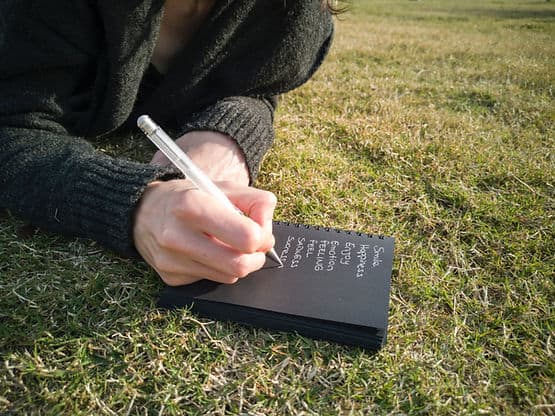5 Ways to Find Yourself
It’s not unusual for my clients to start coaching with a desire to get to know themselves. They want to understand why they do what they do, what makes them tick. Ultimately, they’re interested in feeling more purposeful and confident in their lives.

When I chose to study counseling psychology I was very much galvanized by a deep sense of confusion and stuckness. I felt passionate about figuring myself out. I was struggling a lot inside my relationship with myself and as a result, in relationships with others. I was often getting tripped up in what felt like the maze of my own mind. The most enriching choice I ever made was to dive deeply into myself. The process began decades ago, but it has never stopped.
Developing an awareness of yourself is not something that ends. You don’t reach a destination at which you can say, “I’ve arrived!” This is not discouraging; it’s amazing! We are constantly evolving and growing, and as we get to know ourselves, we step into experiences that have the potential to continue shaping us, healing old wounds, and drawing us in closer to all the parts of ourselves.
So how do we start that self-awareness journey?
Here are five ways you might begin (and continue, over and over again) to step onto that path of finding yourself when you feel lost.
- Recognize now, that you have inside of you, an assortment of different personalities. Call these “parts of you,” call them your internal family system. The names don’t matter. What does, is understanding that it’s perfectly normal to feel you are multiple. Often, you will feel one way, and also another. One part of you wants this, and another part of you wants that. You aren’t delusional- you’re human. Just knowing that you’re not crazy to have different parts of you think different things and feel different things can be immensely helpful. You no longer have to fight to feel just one way. Understanding this opens up new possibilities for how to be with yourself.
- When I say “yourself,” I mean the whole of you. All the parts of you, together. When you first start paying attention to yourself this way, it can feel weird. You can imagine the whole of you being like a symphony. Each part has its own music to play, but all the parts are playing from the same score. Ideally, the parts play in harmony. But in order to do so, a symphony needs a conductor. Your conductor is your truest Self– the deepest, core part of you. Call it your Soul if you like.
I love this term because it represents the part of you that has never been damaged, wounded, or conditioned in any way to ever doubt your innate worth in this world. However, the majority of us have experienced much pain, distress, and traumas in life, and as such, various parts of us developed in an attempt to protect us from feeling the discomfort associated with them. When you begin to experience a sense of strong anxiety, there’s a part speaking up. Then, notice what you do.
If you’re someone who engages in impulsive behavior when you experience anxiety, you’ve just met another part that’s showing up because it believes it needs to save the day. You can get to know yourself by noticing all the different parts that show up on a daily basis, when, and what their roles are. - When my clients tell me they want to find themselves, often it’s a deeply wounded part of them that is speaking. The Soul or true Self already knows it’s there. It’s grounded, stable, soft, compassionate, curious, courageous, calm. It’s always been there. But it’s likely that the other parts have been so loud, working ferociously to do what they believe they need to do to survive and take care of you, to have you listen, that your core has felt buried. The other parts are doing the driving… or conducting.
Different parts of you may be people-pleasing, overworking, overfunctioning in relationships in an attempt to save you, so it can feel as if you’re always just trying to put out fires. These parts, that manage your day to day activities and feelings, are often really young, doing what they learned to do in their younger years to try to stay safe, but not realizing that the burden they needed to carry then may no longer be functional or helpful now.
That doesn’t mean that the part needs to go away or disappear. The part will remain, but it needs to start trusting that it can relax. That won’t happen with you avoiding it, blasting it with criticisms, and shoving its feelings under the rug. That isn’t how trust is built, right? Imagine how that would work if your child came to you, scared and out of sorts? We must begin listening to these parts, learning about them, creating a relationship of warmth and respect with them. - Creating a bit of healthy distance from difficult emotions has always been something I’ve helped my clients with. This does not mean that we avoid them, ignore them, or try to bypass them in some way. It means we approach them different. Rather than saying “I am feeling ______”, we might say, “This is an experience of ______.” The feeling then is recognized as not being all of us, but instead, a part of us. In parts language, we might say, “A part of me is experiencing _____________ (name the emotion).”
By expressing it this way, we have a bit of separation and can better begin to work with it. Working with it can look many different ways, but one of the best starting places is just to acknowledge it’s there. You might just say softly to that part of you, “I see you, I know you’re here.” It can feel like a soothing balm to be noticed, right? I’m thinking of the days when I would regularly attend networking meetings (never again, please!). I was always silently hoping, praying that someone would notice me when I walked in and come over to gently say, “Hello, it’s so good to see you. Thank you for coming.” Just that, when it happened, always felt like such a relief. - I’m watching Homeland now with my husband. One of the main characters has a teenage daughter who is feeling crazy, watching all of the lying going on in her family, never feeling safe that she can trust what anyone says, and beginning to doubt that what felt like such a strong sense of personal morality is even grounded anymore. I imagine that if she was given the opportunity to see a therapist or just talk to someone who wouldn’t judge or try to change her, it would take a very long time before she would open up. Many of our parts are going to be like this too.
They’ve been exiled for so long, they will need tremendous patience, warmth, time, and consistent recognition to trust that they won’t be banished anymore. The parts that want to banish them because they believe the feelings they carry are just too difficult!, are the parts we may need to work with first. They are protectors and have gotten used to jumping in very quickly. They also need to trust that they can begin to soften their grip and practice relinquishing the burden they’ve adopted.
Your core, your truest Self, your Soul (to me they’re the same thing) is here. Personally, accessing my core has become easier and easier, faster and more frequent, because the rest of me feels seen. The parts that like to do all the managing and can get hyper-focused on perfectionism, accomplishments, assessing, analyzing, and overwork– they don’t have to work so hard anymore because I’m taking care of the vulnerable parts that are scared of making mistakes, not knowing the answer, and disappointing people. Resting no longer feels forced. Play is more often and spontaneous. Joy arises with greater ease.
Looking for more support?
Check out The Confident Coping Without Food System, a 16-week online coaching program with built-in support, a virtual community, and live weekly coaching calls designed to liberate you from dieting and make peace with food and your body.
Check out my online, self-paced course, End Emotional Eating & Change Your Relationship with Food, that over 400 students have taken, is top-rated, and jam-packed with resources to support your development of new skills!
I also offer virtual one-on-one support – contact me to learn more about my Liberated Life coaching options.
I recognize that if you’ve never been exposed to this sort of language regarding your parts, it can seem strange. That’s totally understandable. It can be like learning a new language at first. How beautiful to learn the language of YOU!





